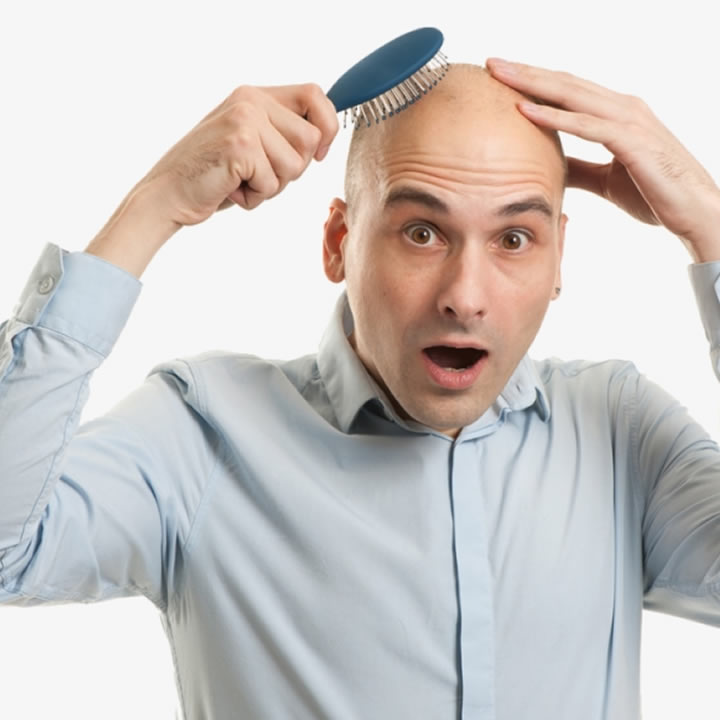It’s natural to lose hair throughout the year and even have periods when we notice this hair loss is more significant. However, if you feel like your hair is decidedly less thick and lustrous, or you can spot bald spots or thinning in particular areas, it’s time to do something about it.
We all want to look and feel our best, and having lush locks is one part of that. Happily, there are multiple ways you can treat hair loss today that can make a difference.
Examine Potential Causes
The first step is to determine if your hair loss may be stemming from an underlying medical condition. If so, you might be able to do something to address that condition and, in turn, see your hair come back thicker. It’s wise to speak with your doctor to let them know about your hair loss and any other issues you’ve been experiencing so they can help you figure out what might be wrong.
There are multiple causes of hair loss, many of which can be diagnosed via blood tests or another testing by your medical practitioner. For example, some common problems that lead to hair thinning include thyroid and hormonal balances, autoimmune diseases, scalp infections, anaemia, and chronic illnesses.
It’s also worth considering whether you’re taking any medicine right now, either prescribed or supplemental, that could be having the effect of making your hair fall out, thin, or not grow as it used to. Some medications can have side effects that lead to hair loss, so again, chat with your primary care physician for advice.
Pay Attention to Diet and Deficiencies
For many hair loss sufferers, the reason behind the issue is dietary lack. We must eat a healthy, balanced diet full of nutritious meals that give us various vitamins and minerals. Doing so improves our health in many ways, including hair health.
Many vitamins and minerals provide the building blocks our hair needs to grow and stay resilient. If you’re dealing with nutritional deficiencies, though, it’s hard for your hair to look and feel its best.
For example, protein is crucial since hair is made from it. Ensure you’re eating enough lean meat, eggs, seafood, nuts, legumes, and leafy greens to get the protein your body needs. Vegetarians and vegans often need to supplement with protein powders to keep their levels up. You also need to consume good fats for omega-3s and complex carbohydrates for optimal hair health.
Plus, have blood tests to see if you need to start taking a quality liquid zinc or tablet formula, biotin (one of the best B vitamins for hair), iron, or vitamins D, A, C, or E. These are all essential nutrients the hair requires.
Stay Hydrated
We all get told over and over to drink plenty of water to stay hydrated for general health, but it’s helpful to know that hydration is necessary for hair growth and strength, too. If you don’t drink enough water each day, your hair might thin because it’s made up of a significant percentage of water and needs more moisture to grow.
The right level of water for you may differ from others, depending on your height, weight, and build, among other factors. However, aim for a minimum of two litres daily.
Reduce Your Stress Levels
Another way to support your hair is to reduce your stress levels. Stress doesn’t just negatively impact mental and emotional wellbeing. It also has numerous unfortunate physical consequences. One of those is hair-related issues. Stress can exacerbate dandruff, psoriasis on the scalp, and other disturbances on this part of your head.
It also raises androgen levels, which can lead to your hair falling out. Plus, stress can mess with gut health and digestion, which can be bad for locks. Look for ways to avoid stress triggers in your life and utilize relaxation tools such as deep breathing, meditation, stretching, exercise, sleep, etc., to help your body as a whole, including your hair.
Minimize Hair Harming Colors and Treatments, and Tool Overuse
When it comes to hair loss, changing your styling habits can help. Consider if the products and tools you use on your hair may be putting it under undue pressure and causing it to grow weak and brittle and fall out as a result.
For example, bleaching, blow-drying, styling with heat-related products, and low-quality shampoos, conditioners, styling items, etc., can cause issues. Make changes to test if being kinder to your hair helps it come back thicker and lusher.
We often don’t pay much attention to hair health until our locks don’t seem happy. If you test out the ideas listed above, though, you should hopefully see your hair come back to its prior level.

